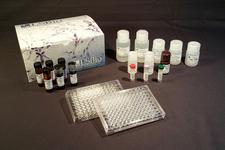order histories, retained contact details for faster checkout, review submissions, and special promotions.
Forgot password?
order histories, retained contact details for faster checkout, review submissions, and special promotions.
Location
Corporate Headquarters
Vector Laboratories, Inc.
6737 Mowry Ave
Newark, CA 94560
United States
Telephone Numbers
Customer Service: (800) 227-6666 / (650) 697-3600
Contact Us
Additional Contact Details
order histories, retained contact details for faster checkout, review submissions, and special promotions.
Forgot password?
order histories, retained contact details for faster checkout, review submissions, and special promotions.
ITPKC
inositol-trisphosphate 3-kinase C
ITPKC is a member of the inositol 1,4,5-trisphosphate [Ins(1,4,5)P(3)] 3-kinase family of enzymes that catalyze the phosphorylation of inositol 1,4,5-trisphosphate to 1,3,4,5-tetrakisphosphate. The encoded protein is localized to the nucleus and cytoplasm and has both nuclear import and nuclear export activity. Single nucleotide polymorphisms in this gene are associated with Kawasaki disease.
| Gene Name: | inositol-trisphosphate 3-kinase C |
| Family/Subfamily: | Non-protein Kinase , ITPK |
| Synonyms: | ITPKC, InsP 3 kinase C, IP3-3KC, InsP 3-kinase C, IP3KC, IP3K C, IP3 3-kinase C |
| Target Sequences: | AJ290975 CAC40815.1 Q96DU7 |

If you do not find the reagent or information you require, please contact Customer.Support@LSBio.com to inquire about additional products in development.









